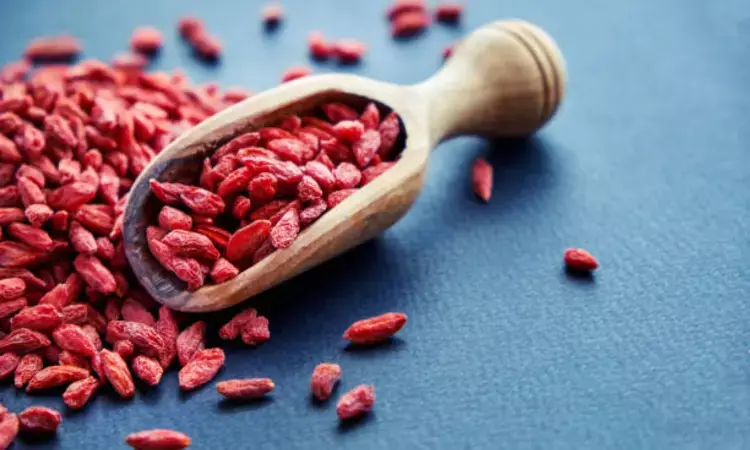- Home
- Medical news & Guidelines
- Anesthesiology
- Cardiology and CTVS
- Critical Care
- Dentistry
- Dermatology
- Diabetes and Endocrinology
- ENT
- Gastroenterology
- Medicine
- Nephrology
- Neurology
- Obstretics-Gynaecology
- Oncology
- Ophthalmology
- Orthopaedics
- Pediatrics-Neonatology
- Psychiatry
- Pulmonology
- Radiology
- Surgery
- Urology
- Laboratory Medicine
- Diet
- Nursing
- Paramedical
- Physiotherapy
- Health news
- Fact Check
- Bone Health Fact Check
- Brain Health Fact Check
- Cancer Related Fact Check
- Child Care Fact Check
- Dental and oral health fact check
- Diabetes and metabolic health fact check
- Diet and Nutrition Fact Check
- Eye and ENT Care Fact Check
- Fitness fact check
- Gut health fact check
- Heart health fact check
- Kidney health fact check
- Medical education fact check
- Men's health fact check
- Respiratory fact check
- Skin and hair care fact check
- Vaccine and Immunization fact check
- Women's health fact check
- AYUSH
- State News
- Andaman and Nicobar Islands
- Andhra Pradesh
- Arunachal Pradesh
- Assam
- Bihar
- Chandigarh
- Chattisgarh
- Dadra and Nagar Haveli
- Daman and Diu
- Delhi
- Goa
- Gujarat
- Haryana
- Himachal Pradesh
- Jammu & Kashmir
- Jharkhand
- Karnataka
- Kerala
- Ladakh
- Lakshadweep
- Madhya Pradesh
- Maharashtra
- Manipur
- Meghalaya
- Mizoram
- Nagaland
- Odisha
- Puducherry
- Punjab
- Rajasthan
- Sikkim
- Tamil Nadu
- Telangana
- Tripura
- Uttar Pradesh
- Uttrakhand
- West Bengal
- Medical Education
- Industry
Inclusion of goji berry in diet may help reduce long-term CVD risk: Study

Regularly incorporating goji berry (wolfberry) into the diet may be beneficial in lowering long-term vulnerability for cardiovascular diseases, suggests a study published in The American Journal of Clinical Nutrition.
Goji berries also called wolfberries are tiny red fruits filled with antioxidants and have great medicinal significance. They do not only add a pop of color to the plate but are also delicious and full of flavor. These berries are usually available in powdered or dried form. Also, they're added to many nutritional supplements and juice blends. Additionally, consumption of goji berry scientifically knows as Lycium barbarum, provide carotenoids and bioactive polysaccharides, which may act as a possible dietary strategy for cardiovascular disease (CVD) risk management. However, the data examining the effects of the whole fruits are limited.
A study was conducted by a group of researchers from Singapore, to examine the influence of eating goji berries as part of a healthy dietary pattern on vascular health-related outcomes and conventional CVD risk factors in middle-aged and older adults in Singapore.
The researchers conducted a 16-week, parallel design, randomized controlled trial on a total of 40 participants. All of them were given dietary counseling to follow healthy dietary pattern recommendations with the wolfberry/ goji berry group given extra instructions to cook and consume 15 g/d whole, dried wolfberry/goji berry along with their main meals. Biomarkers of vascular function, vascular structure, and vascular regeneration, were evaluated at baseline and postintervention. Serum lipid-lipoproteins and blood pressure were also checked every 4 weeks.
The results of the study are as follows:
Ø All participants demonstrated an improved adherence towards the healthy dietary pattern.
Ø Also, there were marked rises in total nitrate/nitrite concentrations and reductions in endothelin-1 concentrations.
Ø Compared with the control group which depicted no changes from baseline, the goji berry group had a significantly higher HDL cholesterol, as well as lower Framingham, predicted long-term CVD risk and vascular age postintervention.
Ø All other vascular health-related outcomes were similar in both groups.
Thus, the researchers concluded that in middle and old age people, compliance to a healthy dietary pattern improves their vascular tone. And Including wolfberry in the diet further ameliorates serum lipid-lipoprotein profile and may reduce long-term CVD risk.
Reference:
A study titled, "Enhancing the cardiovascular protective effects of a healthy dietary pattern with wolfberry (Lycium barbarum): A randomized controlled trial" by Toh D et. al published in The American Journal of Clinical Nutrition.
DOI: 10.1093/ajcn/nqab062
Dr. Shravani Dali has completed her BDS from Pravara institute of medical sciences, loni. Following which she extensively worked in the healthcare sector for 2+ years. She has been actively involved in writing blogs in field of health and wellness. Currently she is pursuing her Masters of public health-health administration from Tata institute of social sciences. She can be contacted at editorial@medicaldialogues.in.
Dr Kamal Kant Kohli-MBBS, DTCD- a chest specialist with more than 30 years of practice and a flair for writing clinical articles, Dr Kamal Kant Kohli joined Medical Dialogues as a Chief Editor of Medical News. Besides writing articles, as an editor, he proofreads and verifies all the medical content published on Medical Dialogues including those coming from journals, studies,medical conferences,guidelines etc. Email: drkohli@medicaldialogues.in. Contact no. 011-43720751


